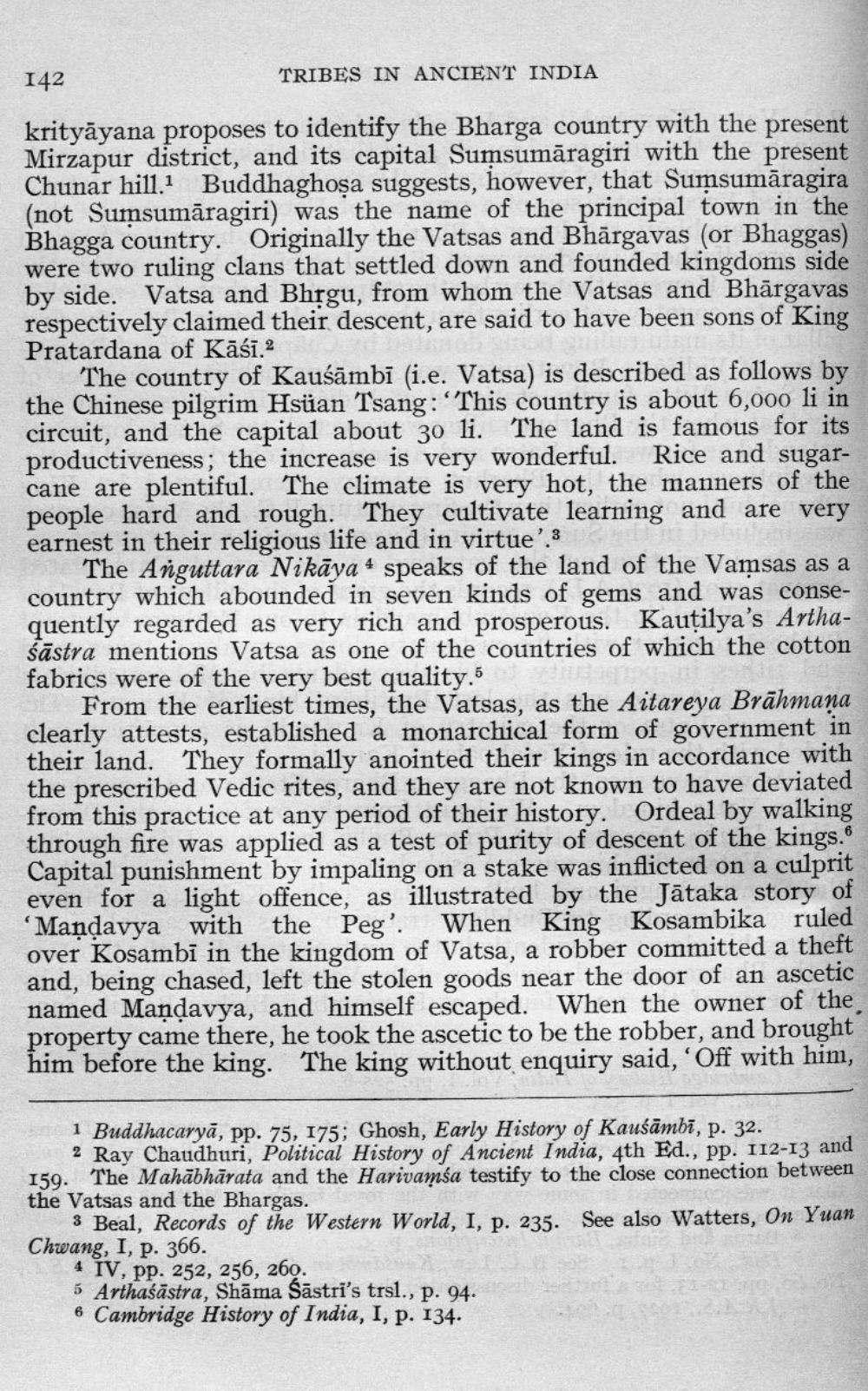________________
142
TRIBES IN ANCIENT INDIA
krityāyana proposes to identify the Bharga country with the present Mirzapur district, and its capital Sumsumāragiri with the present Chunar hill.1 Buddhaghoşa suggests, however, that Sumsumāragira (not Sumsumāragiri) was the name of the principal town in the Bhagga country. Originally the Vatsas and Bhārgavas (or Bhaggas) were two ruling clans that settled down and founded kingdoms side by side. Vatsa and Bhrgu, from whom the Vatsas and Bhārgavas respectively claimed their descent, are said to have been sons of King Pratardana of Kāśī.2
The country of Kauśāmbī (i.e. Vatsa) is described as follows by the Chinese pilgrim Hsüan Tsang: "This country is about 6,000 li in circuit, and the capital about 30 li. The land is famous for its productiveness; the increase is very wonderful. Rice and sugarcane are plentiful. The climate is very hot, the manners of the people hard and rough. They cultivate learning and are very earnest in their religious life and in virtue's
The Anguttara Nikāya 4 speaks of the land of the Vamsas as a country which abounded in seven kinds of gems and was consequently regarded as very rich and prosperous. Kautilya's Arthaśāstra mentions Vatsa as one of the countries of which the cotton fabrics were of the very best quality. de
From the earliest times, the Vatsas, as the Aitareya Brāhmana clearly attests, established a monarchical form of government in their land. They formally anointed their kings in accordance with the prescribed Vedic rites, and they are not known to have deviated from this practice at any period of their history. Ordeal by walking through fire was applied as a test of purity of descent of the kings. Capital punishment by impaling on a stake was inflicted on a culprit even for a light offence, as illustrated by the Jātaka story of 'Maņdavya with the Peg'. When King Kosambika ruled over Kosambi in the kingdom of Vatsa, a robber committed a theft and, being chased, left the stolen goods near the door of an ascetic named Maņdavya, and himself escaped. When the owner of the property came there, he took the ascetic to be the robber, and brought him before the king. The king without enquiry said, 'Off with him,
1 Buddhacaryā, pp. 75, 175; Ghosh, Early History of Kaušāmb7, p. 32.
2 Ray Chaudhuri, Political History of Ancient India, 4th Ed., pp. 112-13 and 159. The Mahābhārata and the Harivamśa testify to the close connection between the Vatsas and the Bhargas.
3 Beal, Records of the Western World, I, p. 235. See also Watters, On Yuan Chwang, I, p. 366.
4 IV, pp. 252, 256, 269. 5 Arthaśāstra, Shāma Sāstri's trsl., p. 94. 6 Cambridge History of India, I, p. 134.




